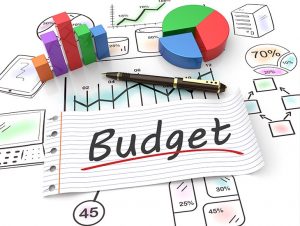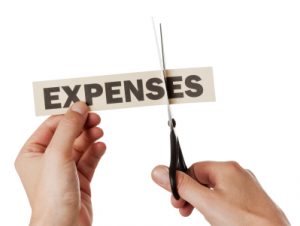 I remember learning about budgeting for small businesses when I was at college and considering it all rather trivial. It’s quite different when you have to carefully consider budget matters for your own startup and I found the task quite daunting at times.
I remember learning about budgeting for small businesses when I was at college and considering it all rather trivial. It’s quite different when you have to carefully consider budget matters for your own startup and I found the task quite daunting at times.
Before you approach potential investors or financial institutions in an attempt to get finance for your business, every single one of them will want to see your business plan and your budget in particular. You can’t blame them for asking, after all, it will be their cash that will get you started and they all want to make sure that you understand basic business finance and are familiar with the sector you are establishing your business in. While you will also be asked for financial projections, the most integral part of your business plan is the budget.
To take the sting out of budgeting, I am outlining the different items you need to include and explain what a budget is ultimately needed for.
Budgeting – Basically Just Common Sense
 It’s all common sense really, a budget is a framework within which you ensure that the income your business creates is higher than the amount of money you spend running your company. Much like with a household budget, you make sure expenses are covered by income.
It’s all common sense really, a budget is a framework within which you ensure that the income your business creates is higher than the amount of money you spend running your company. Much like with a household budget, you make sure expenses are covered by income.
When creating a business budget, having detailed projections of expected income is crucial. If you haven’t started selling yet, estimating future income can be challenging and requires thorough market research. Creating realistic sales projections is an integral part of putting together a business plan.
Once income projections are made, a useful tool for analyzing expected expenses in relation to income is a saas financial model spreadsheet template. This Excel model projects revenue, costs, cash flow, and other financial metrics based on the sales projections and cost assumptions you input. It can help you visualize profitability and test budget reduction scenarios to see where expenses can be trimmed without impacting operations. Additionally, exploring other budgeting and expense management software can complement your financial analysis efforts.
The Two Sides of a Budget: Income and Expenses
Budgets are usually compiled for a 12 months period and in essence, on a budget, the money you make is put against the money you spend making it.
Income
On the income side, you will have to produce a figure that is either estimated by using past sales figures or by making sales projections. You will never get it 100% accurate, but you can have a fairly good idea of what your income will be.
Expenses
 One of the most commonly made mistakes is to leave out certain expenses and find yourself caught out at the end of your budgeting period. It is therefore vital to include absolutely every possible expense you can think of.
One of the most commonly made mistakes is to leave out certain expenses and find yourself caught out at the end of your budgeting period. It is therefore vital to include absolutely every possible expense you can think of.
You could enlist the services of Data Lead Tom Baskind or similar professionals who can assist you in estimating the costs associated with materials, labor, and equipment required for your projects. This can provide you with a clearer understanding of the potential expenses you might incur, allowing for a more accurate projection of your overall project costs.
Remember product providers must first and foremost include the cost of production, for instance, a baker will have to calculate how much it costs to produce 10’000 loaves of bread, how much the ingredients will cost, and how much wage and electricity costs will arise.
Service providers do not have to buy or produce a product and need only consider the actual running costs. These costs naturally also apply to product manufacturers. The main areas of expenditure are:
- Fixed Costs: Fixed costs are always the same and include items like rent, licensing fees, loan repayments, wages etc.
- Variable Costs: This list will include practically everything from heat, power, telephone, internet, advertising, marketing, petty cash, petrol and motoring expenses, office administration expenses, computer and equipment costs. Variable costs also include regular maintenance and repair expenses if you have an office or a space to work out of. These can be anything from bringing in electricians for safety testing to availing experts in Commercial Jetting from Express Drainage Solutions or a similar company. They are considered preventative expenses that could save you from spending more later.
Once you carefully add all the costs you will have a good idea of how much it costs to run your business.
Making Sure it All Adds Up
If you find that your expenditure is higher than your estimated income, you will either have to reduce your costs or increase the prices you charge for your products or services. First, try to see if you can cut down on any expenditures. If you look carefully, you might find costs that can be reduced, that you might have missed before. Check your water bills, and switch to another supplier (head to sites like https://www.h2obuildingservices.co.uk/ for an example) if the costs of the current one are too much. Do the same with electricity, heating, and other utility charges. When you’re done, look at your energy bills for the same. If you have checked thoroughly, and find no way to reduce costs, then you can consider increasing the price of your products or services. Concerning that, one of the most important things is to pitch your prices correctly so that you have a sufficient profit margin.
What A Budget Will Do for Your Business
By budgeting you ensure that you are running a profitable business and make some financial gain at the end of each year. Budgeting is necessary and quite easy.
